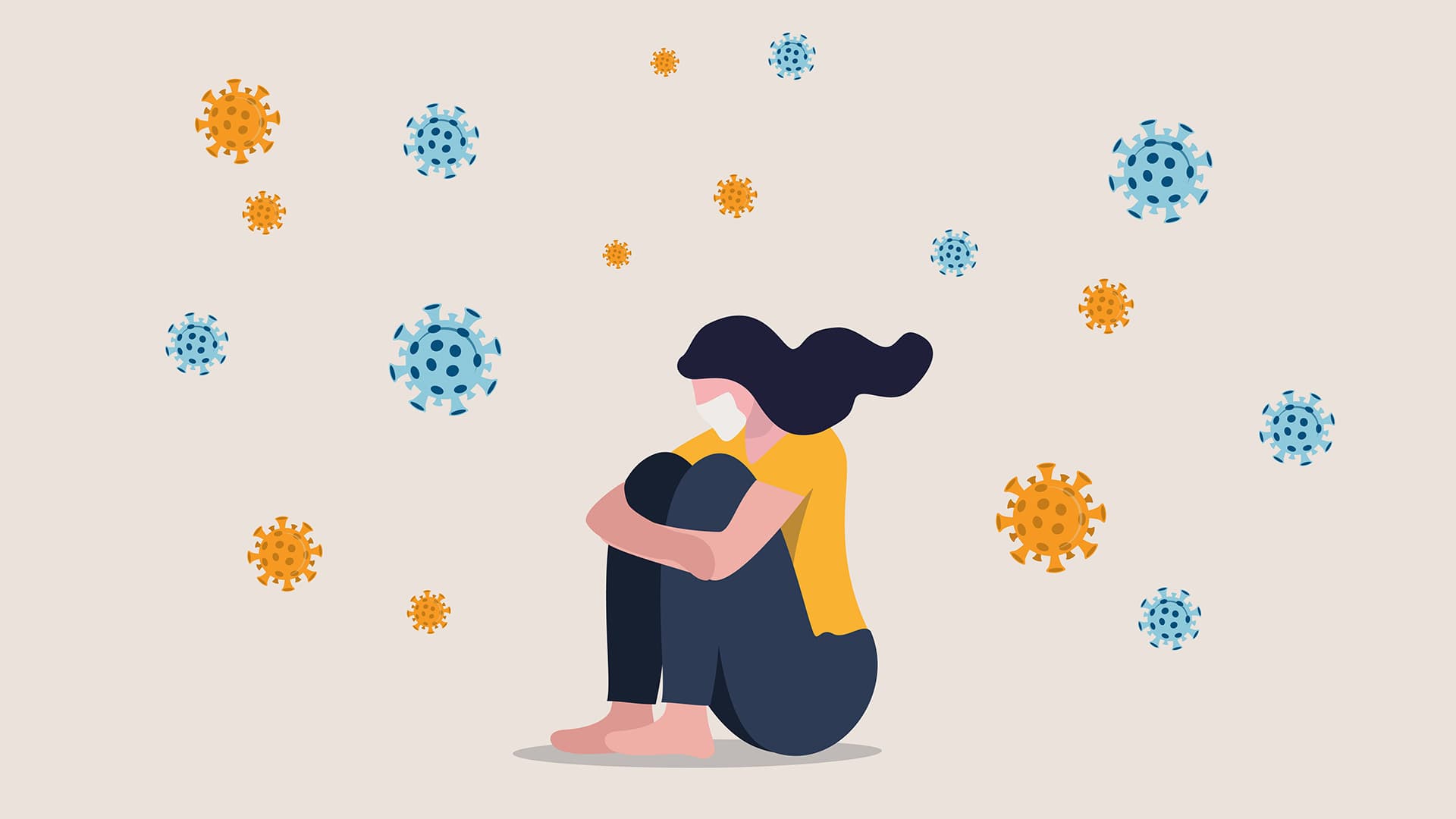Op/ed: ‘What Do I Do With These Emotions?’
Faculty-Staff Counselor Shares Observations on Staying Resilient Amid Worry, Grief of Pandemic

Illustration by iStock
Thomas N. Ruggieri, a counselor at UMD’s Faculty Staff Assistance Program, shares his observations on managing stress, anxiety and grief amid the COVID-19 pandemic.
As a counselor at UMD’s Faculty Staff Assistance Program, I have spent 30 years helping people understand and make sense of what they are going through. I was around for 9/11 and the tornado that swept through our campus two weeks later. That was tough. This is tougher.
The common questions I’m hearing during the coronavirus pandemic are: What do I do with these emotions? How do I manage all of this stress and anxiety? And how do I manage my kids/parents while also trying to work and not go crazy? More importantly from my perspective is: How do I respond to ALL of them in such a way to not only be helpful but to also keep my own sanity?
I have had the great fortune to be able to provide Zoom presentations to departments all over campus on managing stress, anxiety and grief during these times. It has given me an inside view on how all of us are getting by. This is what I have learned.
- People are scared. I know, that’s pretty obvious, but it is the overwhelming emotion expressed. And we are grieving. I am grieving too. Grieving the loss of predictability, financial security, human connection, structure and ultimately, grieving the loss of life. Most of us by now know someone in our immediate circle or one removed who has died of COVID-19. As these numbers increase, our grief becomes more palpable.
- Most of us REALLY miss work. Not just the work that we do, but the people with whom we work. Many have told me that they are no longer considering retiring because of how much they miss their coworkers.
- Many of us are a little less patient, a little more irritable and not always presenting our best version of ourselves. I advise people to stock up on compassion, both for others and for ourselves, as we are facing something we have very little training for and we are doing our best. In these times, our best often falls short, and that is okay.
- Many are asking a lot of “what if” questions, most of which have no immediate answers. I advise people to take it one week at a time and to avoid fixating on the things we can’t control. Focusing on matters that we can manage seems to give us more stability, so: exercise, wash the hands, keep the distance, wear the mask.
- People are showing remarkable creativity and flexibility in finding new and inspiring ways to both do their jobs and to interact with others. Technology has been a real plus in this endeavor, and I feel grateful to be alive at a time when we can take advantage of this. I have also heard from those with little or no work to do; they have their own level of stress, as they want to be useful. When possible, I encourage them to keep in contact with their supervisors and to be creative in offering ways to be of assistance, acknowledging that supervisors might not immediately be able to identify such opportunities.
- Mostly, I am reminded daily of the incredible spirit that so many have provided in trying to be there for others. We know that this is one of the most important things we can do to manage our stress, but this also allows our coworkers and colleagues to benefit. I urge everyone to do whatever works best to take good care of ourselves. Do not be afraid to reach out for conversation.
Joan Bellsey, assistant coordinator or the Faculty Staff Assistance Program, and I welcome the opportunity to speak/Zoom with you. I am mostly looking forward to the next time I can walk around McKeldin Mall and be able to say hello, high-five and hug each and every one of you.
Tom Ruggieri LCSW-C is coordinator of the Faculty Staff Assistance Program.